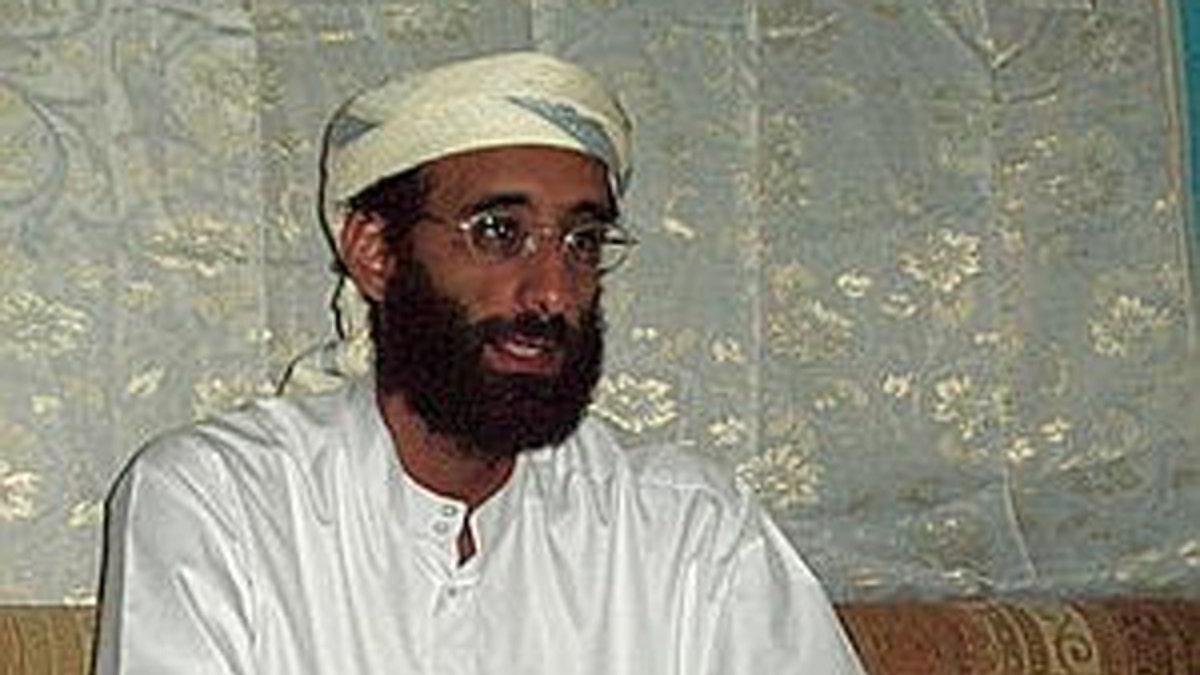
Radical Yemeni-American cleric Anwar al-Awlaki (AP)
Times Square bomb plot suspect Faisal Shahzad is a “fan and follower" of a radical American-born cleric linked to the Fort Hood attack in November and the attempted jet bombing on Christmas Day, sources tell Fox News.
Shahzad is a fan of Anwar al-Awlaki's CDs, which promote the cleric's extremist Muslim ideology, sources say, however, there is no known evidence yet that that Shahzad had direct contact with Awlaki, such as through e-mails.
Awlaki, who is under a kill-or-capture order by the U.S. government and believed to be hiding in Yemen, is now linked to the last three terrorist plots designed to kill Americans at home.
Shahzad, a Pakistani-American from Connecticut, was arrested while trying to board a flight out of the country Monday a little more than two days after he allegedly parked a bomb-laden sports-utility vehicle in New York's Times Square. The crude explosive failed to detonate.
He later told interrogators he was linked to the Taliban in Pakistan, had received bomb-making training there and was upset over U.S. drone attacks in Pakistan, sources said.
The Pakistani Taliban denied involvement on Thursday but called Shahzad's work "a brave act."
Authorities are still trying to corroborate any links between Shahzad and known terrorists, as they also try to figure out how much the U.S. government knew about Shahzad before Saturday's attempted attack.
"We are in the process of trying to determine exactly what we knew about [Shahzad] and when," Attorney General Eric Holder told a Senate committee on Thursday.
Specifically, he said, the Justice Department and others are looking at files and "indicies" across the U.S. government "to see exactly what we knew about this gentleman."
One law enforcement official said that, after five days of investigation, authorities have found no record of either the FBI or members of a Joint Terrorism Task Force coming into contact with Shahzad prior to the incident in Times Square.
Shahzad falls into one of two categories of terror threats, a former senior U.S. intelligence official tells Fox News. This type of threat involves terror recruits who get their training overseas and return to the U.S. to launch attacks, similar to Najibullah Zazi, the Denver airport shuttle bus driver behind a failed plot to bomb the New York City subway system last September.
But there also are a growing number of so-called homegrown extremists, digital jihadists who become radicalized without leaving the U.S. In an increasing number of cases, they are inspired by Awlaki’s message, which is in English and accessible through the Internet, CDs and books.
Together, the two types of recruits represent an alarming evolution in the nature of the terrorist threat since the attacks of Sept. 11, 2001. The net effect is that the U.S. now is essentially fighting extremism on two fronts.
Fox News' Mike Levine contributed to this report.








































